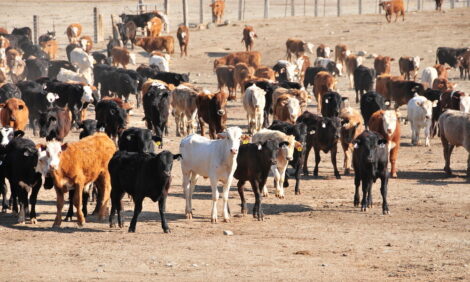



Australian farmer confidence bounces back following rains
Rains doused pasturesWidespread rainfall and improving livestock prices have lifted confidence levels among Australian farmers to their highest in two years, Reuters reported, citing a survey published on Wednesday.
Australia is one of the world's biggest agricultural exporters. Farmers became extremely negative during 2023 as an El Nino weather phenomenon brought dry conditions that hammered crop yields and livestock markets.
But unexpectedly widespread rain across south and east Australia during the southern hemisphere summer has greened pastures, reviving sheep and cattle prices and raising the prospect of bigger harvests.
Some forecasters now expect El Nino to flip later this year to La Nina, which typically brings wetter weather to eastern Australia.
A quarterly survey of around 1,000 agricultural producers by Rabobank found that for the first time since June 2022, more were positive than negative about the year ahead.
The net confidence level rose to 15% from -41% in the last quarter of 2023, though farmers in Tasmania and Western Australia, which saw less rainfall, were less positive than those in other areas, the bank said.
"Farmers took a very conservative approach to spending last year, mindful of reduced incomes and the uncertain summer forecast," said Rabobank executive Marcel van Doremaele. "But they now have more confidence to boost their budgets following improved seasonal and economic outlooks which underpin positive farm margins."
Also on Wednesday, a National Farmers Federation (NFF) forum met to discuss mental health after research it commissioned last year found that 45% of Australian farmers had had thoughts of self-harm or suicide and 30% had attempted to act upon them.
"Life on the land comes with pressures from unpredictable seasons, natural disasters, financial stress and isolation," said NFF President David Jochinke.
Australia is prone to extreme weather swings and its rural areas can be vast and sparsely populated.
"Access to support in the bush can be limited and couple that with a culture of farmers having to be 'resilient' all the time and it can feel like your back is against the wall," Jochinke said, calling for better help for farmers' wellbeing.



